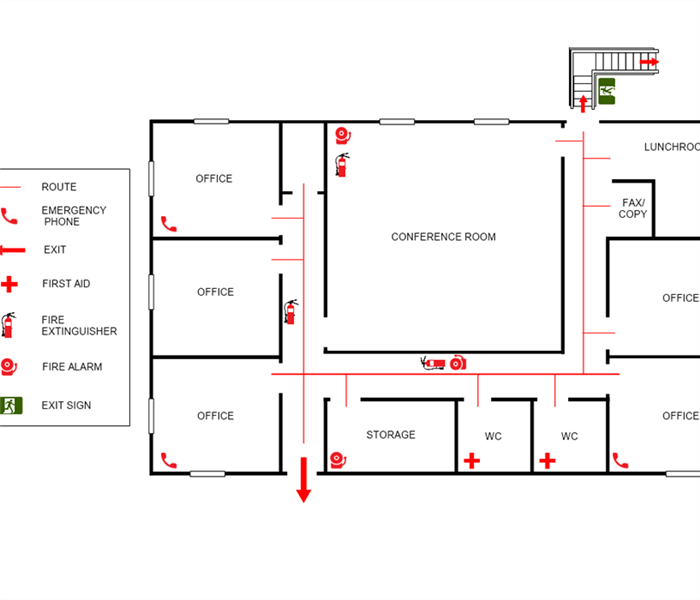How To Create a Fire Evacuation Plan for Your Business
7/28/2022 (Permalink)
In the event of a fire, having a reliable plan in place that everyone in your business is a part of is crucial. Be sure to communicate the plan explicitly and have all your employees practice it to ensure that everyone knows what to do in case of a real fire. To help you get started, here are some essential components of an effective fire escape plan for your business.
Assign Responsibilities
To establish order in your business in the event of a fire, there needs to be a clear list of responsibilities that must be taken care of. Some of the fundamental roles that you should assign to your employees include:
- Chief supervisor
- Assistant supervisor
- Floor monitor
- Route guide
The supervisors can help alert the other employees and call the fire department, and the floor monitor and route guide can make sure everyone is out of the building. Giving these roles to the employees you believe are the best fit can keep things running as smoothly as possible.
Establish Routes
A critical requirement of a good fire escape plan is mapping out clearly defined evacuation routes throughout your building. Make sure that your employees are aware of all the exits in the building so they can turn to the closest one in the event of a fire. It is also a good idea to designate an area outdoors where everyone can meet after evacuating, as this can help confirm that everyone is out of the building.
Inspect Fire Equipment
Your emergency escape plan will be futile if your fire equipment is not functioning properly. Check all the emergency tools in your building and confirm that they are up to date. Be sure to cover everything, including fire alarms, fire extinguishers, emergency lighting and fire doors. Having effective equipment can alert everyone promptly and help to facilitate your evacuation plan.
A fire escape plan is important, but a real incident can leave you with devastating damage. A fire restoration professional can help your business be up and running again “Like it never even happened.”





 24/7 Emergency Service
24/7 Emergency Service
